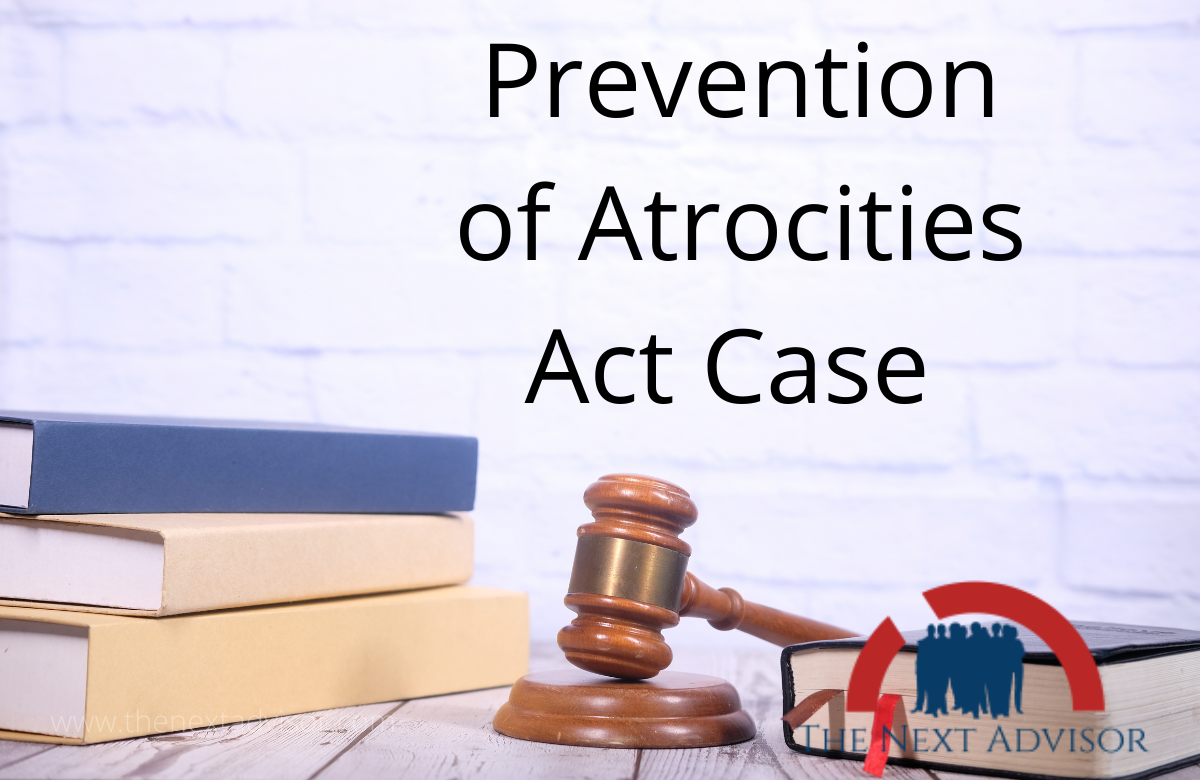Facts
In this case, the constitutional validity of section 18 – A of the Scheduled Caste and Scheduled Tribes ( Prevention of Atrocities ) Amendment Act, 2018 was challenged by the petitioners. In March 2018, the Supreme Court in Kashinath Mahajan held that the Prevention of Atrocities Act was being misused and introduced safeguards to prevent this.
The safeguards given in this case were Conduct of preliminary inquiry before registration of First Information Report Investigating officer should receive approval before arrest. Anticipatory bail to the accused, notwithstanding any judgment or order, or direction of any court. The judgment was followed by months of protest by various SC / ST groups. Then in August, Parliament in effect reversed the judgment by passing the SC / ST ( Prevention of Atrocities ) Amendment Act, 2018.
The 2018 Amendment introduced Section 18A to the Prevention of Atrocities Act, which undid the safeguards introduced in Kashinath Mahajan. Several individuals and organizations filed writ petitions challenging the 2018 Amendment. Their primary argument was that the safeguards introduced in Kashinath Mahajan are necessary because the Prevention of Atrocities Act is being widely used.
The Landmark Case of Prevention of Atrocities Act is Prathvi Raj Chauhan Vs Union Of India, 2020. Let us see this case with the judgment of the Supreme Court.
PETITIONER V RESPONDENT
Petitioner
They contended that imposing an absolute bar on the grant of anticipatory bail violates the fundamental right to personal liberty of accused persons under Article 21. They sought for the Court to strike down Section 18A.
Respondent
Attorney General KK Venugopal on behalf of the Central Government contends that the amendment was made due to a large number of acquittal cases and police failed to implement the act properly and the prosecution of the accused was also not effective.
Supreme Court Judgement
On 10 February 2020, a three-judge Bench of the Supreme Court upheld Parliament’s 2018 Amendment to the Prevention of Atrocities Act. Writing the majority opinion on behalf of himself and Justice Vineet Saran, Justice Arun Mishra held that the Kashinath Mahajan directions placed an undue burden on SC / STs persons who had suffered a caste-based atrocity. Justice Mishra clarified some of the narrow exceptions that exist to the 2018 Amendment.
With regards to preliminary inquiries, he stated they are only permissible under the narrow circumstances specified by the Constitution Bench in Lalita Kumari. With regards to anticipatory bail, he explained that while there is a general bar on granting an accused under the Prevention of Atrocities Act anticipatory bail, this will not apply if the complaint fails to make out a prima facie case for the applicability of the Prevention of Atrocities Act provisions against the accused.
Writing a separate concurring opinion, Justice S. Ravindra Bhat added a caveat to Justice Mishra’s observations on anticipatory bail. Justice Bhat specified that anticipatory bail could only be granted in ‘ very exceptional cases. While he agreed with Justice Mishra that anticipatory bail can be granted if there exists no prima facie offer he observed that this must be applied very sparingly. He warned that ‘liberal use of the power to grant pre-arrest bail would defeat the intention of Parliament ‘.
Supreme Court judge
Justice Bhat also stressed that the Act has been underused. He noted that the National Crime Records Bure only recorded 40,801 Prevention of Atrocities cases in 2016. He suggested that the primary issue is not that the Act is being misused ( as advanced by the petitioners ), but rather that it is being grossly underused. He concluded that additional safeguards would only further dissuade victims from approaching the Police.
He also observed that the Prevention of Atrocities Act was introduced, in part, to actuate the constitutional ideal of fraternity. Relying on Raghunathrao Ganpatrao, he stressed that fraternity is essential in a nation like ours with so many disruptive forces of regionalism, communalism, and linguism ‘. He said that while fraternity occupies a crucial role in the scheme of Indian constitutional democracy, the concept has been jurisprudentially underdeveloped.
He noted that, by contrast, there has been much recognition of equality and liberty as central to the scheme articulated in Part III of the Constitution. He sought to frame the SC / ST ( DA ) Act, 1989 within the framework of fraternity. He showed that the Act seeks to ‘ make real the constitutional provisions of Articles 15 and 17.
Supreme Court Judgement
Court’s judgment in the review petitions challenging Kashinath Mahajan, delivered in October 2019 actually – effect, already upheld the 2018 Amendment. The judgment recalled the directions issued in Kashinath Mahajan on the ground that the directions were issued under the Court’s extraordinary powers under
, which is to be exercised only when there is a legislative vacuum or lack of clarity in the existing provisions of the legislation.
The Court in Subhash Kashinath Mahajan was not confronted with either of these scenarios As Parliament’s 2018 Amendment was designed to undo Kashinath Mahajan, the Court by reversing Kashinath Mahajan, was in – effect upholding the 2018 Amendment.Prevention of Atrocities Act was introduced, in part, to actuate the constitutional ideal of fraternity. Relying on Raghunathrao Ganpatrao, he stressed that fraternity

























